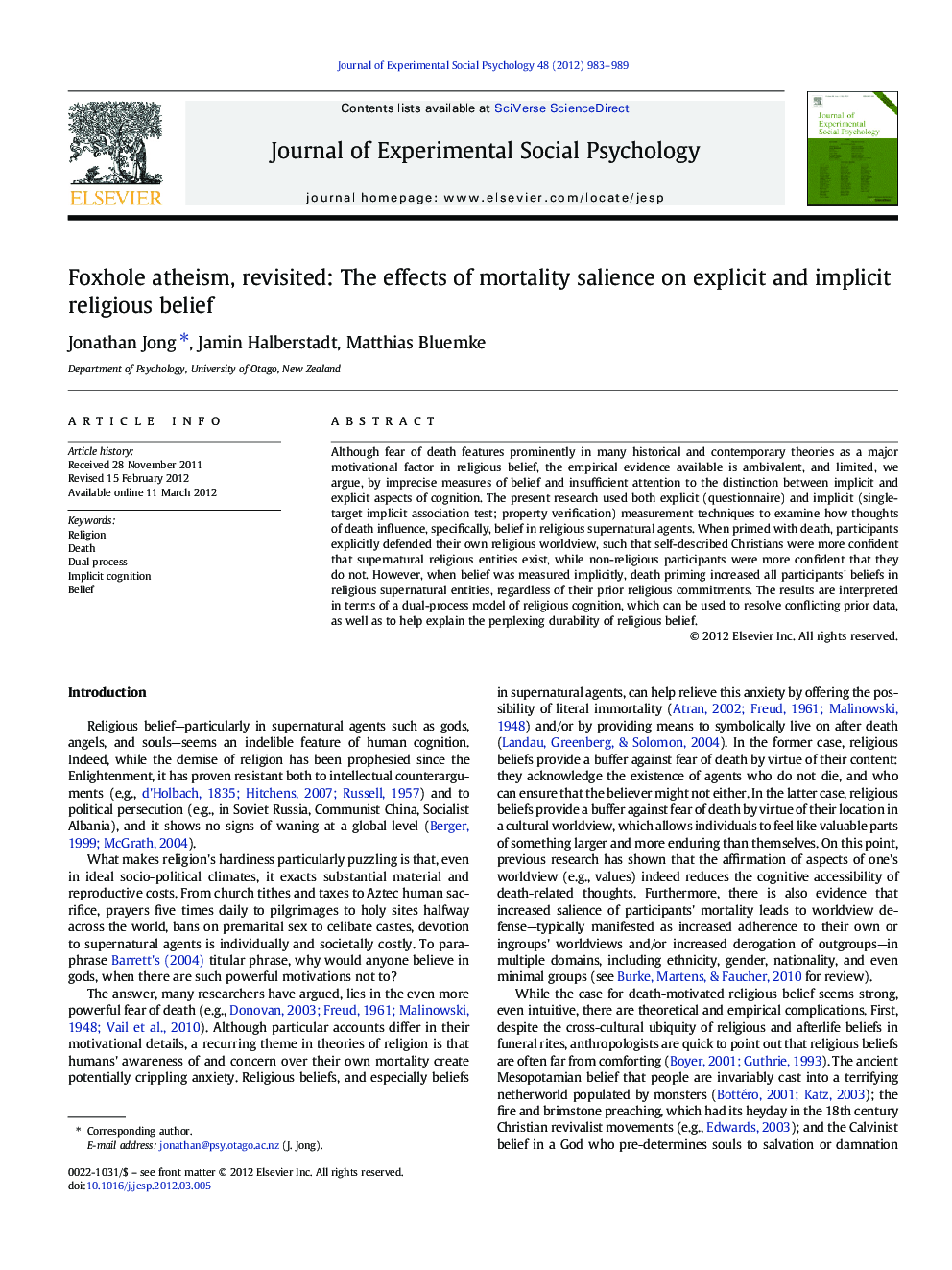| Article ID | Journal | Published Year | Pages | File Type |
|---|---|---|---|---|
| 948032 | Journal of Experimental Social Psychology | 2012 | 7 Pages |
Although fear of death features prominently in many historical and contemporary theories as a major motivational factor in religious belief, the empirical evidence available is ambivalent, and limited, we argue, by imprecise measures of belief and insufficient attention to the distinction between implicit and explicit aspects of cognition. The present research used both explicit (questionnaire) and implicit (single-target implicit association test; property verification) measurement techniques to examine how thoughts of death influence, specifically, belief in religious supernatural agents. When primed with death, participants explicitly defended their own religious worldview, such that self-described Christians were more confident that supernatural religious entities exist, while non-religious participants were more confident that they do not. However, when belief was measured implicitly, death priming increased all participants' beliefs in religious supernatural entities, regardless of their prior religious commitments. The results are interpreted in terms of a dual-process model of religious cognition, which can be used to resolve conflicting prior data, as well as to help explain the perplexing durability of religious belief.
► We examined the effects of mortality salience on religious belief. ► We measured religious belief by questionnaire, ST-IAT, and property verification. ► Explicit and implicit religious beliefs responded differently to mortality salience. ► Mortality salience led to explicit religious and non-religious worldview defense. ► Mortality salience led to implicit religious belief, regardless of prior religiosity.
